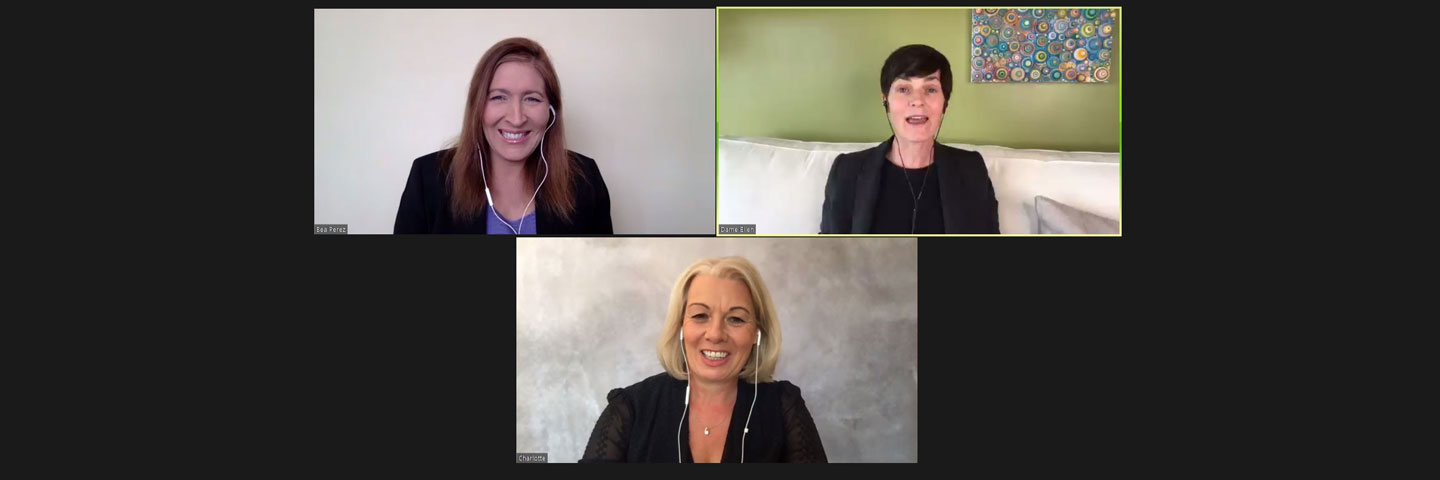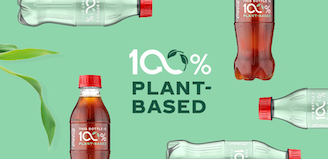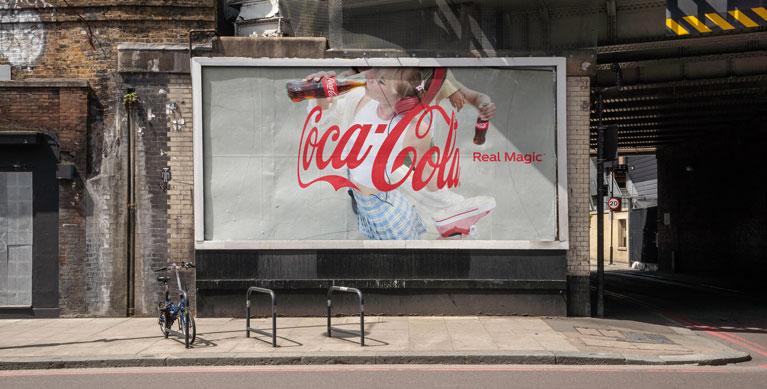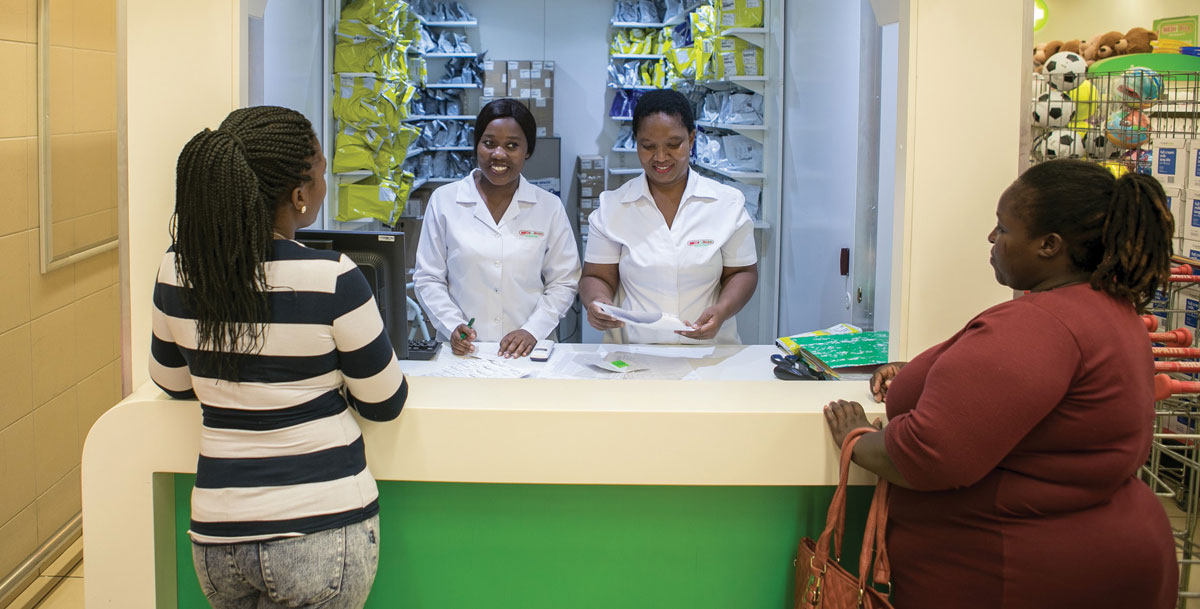
‘This is a Moment of Convergence’: Coke's Bea Perez on How COVID-19 is Accelerating Sustainability Work
08-18-2020
Bea Perez, SVP and Chief Communications, Public Affairs, Sustainability and Marketing Assets Officer at The Coca‑Cola Company joined Dame Ellen MacArthur of the Ellen MacArthur Foundation and Charlotte Kirby, VP of Global Strategic Relations at Salesforce, for a recent webinar on how businesses can redefine growth in the circular economy.
In the session organized by Salesforce, Perez shed light on the company’s sustainability journey over the last decade, and how COVID-19 has created a greater sense of urgency for businesses to move the needle on environmental and social initiatives.
“This is a moment of convergence,” Perez said, urging companies to “use this time not to just pause, but reflect, lean in and accelerate the work. Because behaviors will be different. People will no longer accept brands that are not doing things that are good for them.”.
“This is a moment of convergence,” Perez said, urging companies to “use this time not to just pause, but reflect, lean in and accelerate the work. Because behaviors will be different. People will no longer accept brands that are not doing things that are good for them.”
Here are edited highlights from Perez’s remarks:
… on how she and her team helped ‘reset the business case’ for sustainability:
“I came into this job from operations. I had a P&L and understood that if we were going to ask business unit presidents to deliver on sustainability goals, then they needed to be deeply connected to the business.
“What was missing for me was the accountability on the company side… how could it make us better and stronger as a business? Even 10 years ago, people expected companies to produce and deliver products in better, more responsible ways… they were not going to tolerate companies that didn’t. So, we knew we had to get clear on three to four things and show the business it could grow. That they could not just help us be more productive and efficient… but that by doing the right things, supporting a circular economy and driving fundamental change, we could grow.
… on how the investment community has come to embrace sustainability as a business driver in recent years:
“Ten years ago, many investors did not seem to give business credit. We still needed to convince many in the investor community that this is a benefit, not a cost or a risk.
“Initially, we had our business data assured and validated through an accounting firm, but not our sustainability metrics… In 2011, we said, ‘Within the next five to six years, we want to share our sustainability data with an accounting firm, and we want more investors to start to listen and care and give business credit.’ Because we knew that would drive the economic change needed to fuel further work in sustainability.”
“Once Ernst & Young started to assure our data, we were able to build more credibility and start investor conversations. They wouldn't ask us on earnings calls, so we set up separate sessions. Over the last few years, people are hearing more and more about ESG – environment, social, governance – and more investors now care. We've seen an entire step change within the investor community. And now that investors care, more conversations are taking place in the boardroom.
… on how the 2030 Sustainable Development Goals (SDGs) dovetail with a circular economy:
“We look at the SDGs holistically and try to figure out where they intersect and can build upon each other. There are some things within the circular economy that actually have given more strength to the SDGs. Of the 17 SDGs, easily at least 12 are deeply connected to the circular economy.
“All SDGs are important to us, but we need to really dial up the key ones where our business can make the biggest impact and we can drive the circular economy. We absolutely know we have to continue to design better packaging. World Without Waste is our initiative to eliminate waste in packaging and is something that's deeply connected to the SDGs and the circular economy. Creating better packaging also means we have to drive innovation to bring down the cost for people purchasing our products and give them something they need, especially during these times when society is really struggling.”
… on advice she’d give companies on a similar path:
“Don't be afraid to fail, because if you're not failing through this process, then you're probably not advancing on the other side. It's not for the faint-hearted. You have to really be committed to this work, but you're going to find more people in your business who are committed and have the ideas and the thinking.”
“Align on common definitions. Have accounting firms assure the data, and be more transparent on a quarterly basis, not just an annual basis. I believe that has continued to drive the change we have to have in terms of getting businesses to take the accountability to lean in during this time and use these challenges as opportunities to drive new business models.
“Measure, track and be fully transparent. A couple of years ago, we brought our business and sustainability reports together into one integrated report where the conversation is completely intertwined.
“People are starting to reflect in terms of their own behaviors. Business also has to figure out how can we help people get through these times. ‘Emerging stronger’ can't just be about the business. It has to be about putting the heart and soul of community and society in the business, which makes people better off.”
… on the company’s renewed purpose, which Chairman and CEO James Quincey unveiled in December 2019:
“He fundamentally understands that this is very important to the next hundred years of companies like ours. There are still some people out there who believe shareholder value means just financial value. But that's not how we define it. We define our business by truly creating stakeholder value and having that positive benefit.”
“We always had our purpose to refresh the world make a difference, but it wasn't as clearly defined as it needed to be. Our Chairman and CEO James Quincey rewrote the entire company vision, mission and purpose… he said let’s build better brands done sustainably right at the heart for better shared outcomes for people. Not better shared outcomes just for the business. And he put in metrics and definitions, which is where World Without Waste comes in. He said, ‘We should not be a successful business unless we've actually driven change with our packaging and created that circular economy, and that we don't give up and are relentless.’”


